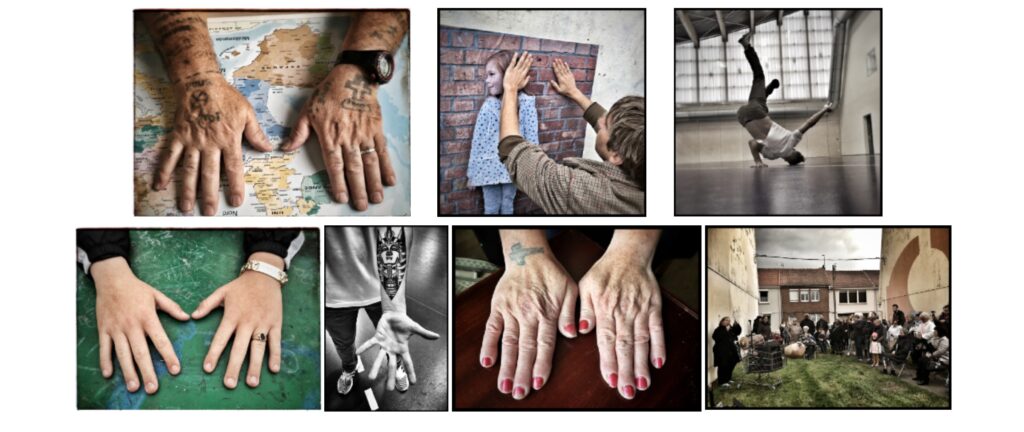 Which relations and practices can be interwoven between the artistic field and academic research so that this relation has a profitable and generative return? Which thoughts can these relations generate to go beyond their geographies of work? How they mutually nurture themselves?
Which relations and practices can be interwoven between the artistic field and academic research so that this relation has a profitable and generative return? Which thoughts can these relations generate to go beyond their geographies of work? How they mutually nurture themselves?
In the frame of the three-year project Atlas Of Transitions, Le Channel Scène National’ work team and a group of researchers from the University of Lille, lead by the professor and researcher Emilie Da Lage, also member of the collective Non Lieux de l’Exil, have worked together as from some artistic practice to investigate key questions as the concept of caring, shelter, exile, and borders specifically meant as biopolitical dispositive that implies the exercise of power over body and migrant’s life. Pathways and working practices are intersected as in the case of Mano à Mano project by the artist Momette, produced by Le Channel, that represented the concrete possibility to articulate and investigate some considerations about, just to mention a few, the administrative use of fingerprints as a tool of social control, the migrant body and borders, theme more than ever detectable and sensed in a place as Calais. All the recordings are shown in the paperwork (HERE).

A story made of encounters and turning around the notion of “shelter” not only as a safe place against the roughness of any migrant’s marginalization policies but also as outcomes of the quality of time and space created by the artistic activities and the practices of cultural management. The contribution here presented is an excursus of this common route.
An experience that stress the conversational feature as the base relational practice between artists, researchers, cultural players, aimed at avoiding to confine the narratives in the areas of acquired methodologies, to open, on the contrary, spaces of unpredictability, uncertainty, invention.



